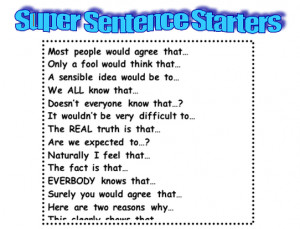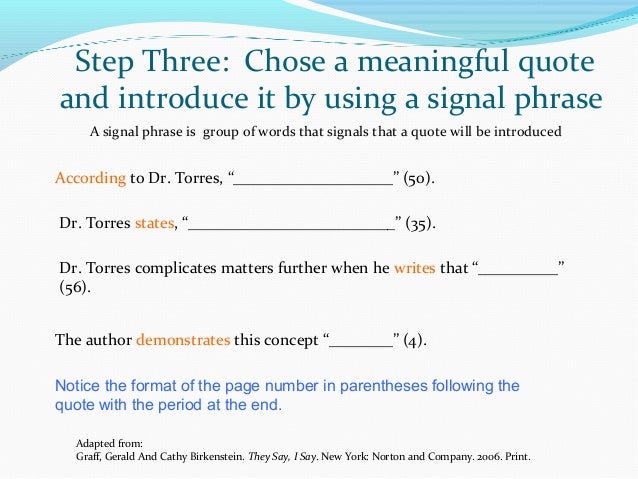

You may want to consider the following, which is by no means a complete description of either the elements of style or their definitions.
The paper should discuss your observations about the text. Don't read your own assumptions into the text, as in: "The speaker must be a man because women wouldn't act so insensitively." Instead, you might say, "The speaker seems to be male because the cursing and the news of the war was more likely the province of men during the early 20 th Century." Instead of a statement such as, "The author shows the pride Americans feel in their freedom," you can more accurately say, "The author is writing about Americans who are proud of their freedom." Twice Woolf tells us that her motherâ?¦." Continue on with, "For example, in â?Reminiscences', Woolf discusses her mother in several places, sometimes repeating herself, sometimes contradicting her previous statements. It's fine to make a point, such as "the first memoir seems rambling and aimless, while the second is tightly structured." But then you must provide examples that support your points. Make sure you're writing an argument, not simply a plot summary. However, remember, in academic writing it is assumed that your audience is familiar with the text. Avoid plot summary at all costs !! It's sometimes hard to resist the desire to rehash a novel's plot. Instead of writing "I couldn't find a beginning, climax, end in â?The Mark On The Wall,'" (which tells your readers about you instead of the text), you might write "'The Mark On The Wall' dispenses with the traditional beginning-climax-end story structure." Avoid comments such as "I likedâ?¦" or "I was confused byâ?¦." Don't refer to your own process of investigation. You're not writing a review, where evaluation is appropriate you're writing criticism (which isn't necessarily critical, but analytic). Don't evaluate the quality of the writing ("Faulkner's use of symbolism, narration, word choice, and characterization made this a powerful novel.") analyze and interpret instead. In most cases, it's best to state your main idea - your thesis - in the first or second paragraph, so that your reader knows right away what it is that you're going to argue. Don't begin with vast generalizations like "Within every human being there are unique thoughts and feelings that no other person has ever experienced before." Or, "Color symbolism is found in all great pieces of literature." These "from the dawn of time" statements point to a lack of focus or (public enemy number one) a vague thesis. Your essay should stand alone, quite independent of the assignment sheet. Don't begin by quoting the assignment sheet or indicating which topic you're writing about. i.e., "A Perfect Day For Banana Fish" can become "Banana Fish." If the title is very long and you are making numerous references to it, you can refer to it by a shortened version. In subsequent references to the author, use his or her last name. (Titles of stories, essays and poems are in "quotation marks.") Refer to the text specifically as a novel, story, essay, memoir, or poem, depending on what it is. Titles of books should be underlined or put in italics. HOW TO INTRODUCE A QUOTE IN YOUR INTRODUCTION FULL
Introduce the text you're writing about in the beginning of your essay by mentioning the author's full name and the complete title of the work. 
Remember, these words can begin a sentence or can connect two independent clauses using the following punctuation: "Woolf's writing can be highly sarcastic and playful however, in To The Lighthouse, the tone is somber and elegiac." Instead of "So" or "Also," use more formal phrases: "It is clear, then, that Marlow lies to himself on at least one occasion" "This passage confirms that Marlow isn't honest with himself."

These are SIGNPOSTS that help the reader follow the thread of your argument. Use transitional words or phrases to connect parts of your argument (e.g., therefore, furthermore, nevertheless, consequently, however, similarly, by contrast, rather, instead, as a result, on the other hand, for example, etc.).The convention in writing about literature is to discuss actions from a work in present tense, as if they were happening right now: "Joyce creates a melancholic mood with images of night and isolation." Or, "When Marlow first sees Kurtz, heâ?¦.".Instead, write, "the reference to her brother's saintliness is ironic" or "the seemingly random association of images suggests freedom." While you are encouraged to use your natural voice, avoid highly colloquial usage, such as "The ending blew my mind" or "Her awesome sense of humorâ?¦" Avoid passive construction, such as "irony can be seen inâ?¦" or "a definite freedom was evidenced inâ?¦," which makes writing feel stiff and pompous.font, double-space, number pages, and proofread carefully correctness counts.







 0 kommentar(er)
0 kommentar(er)
